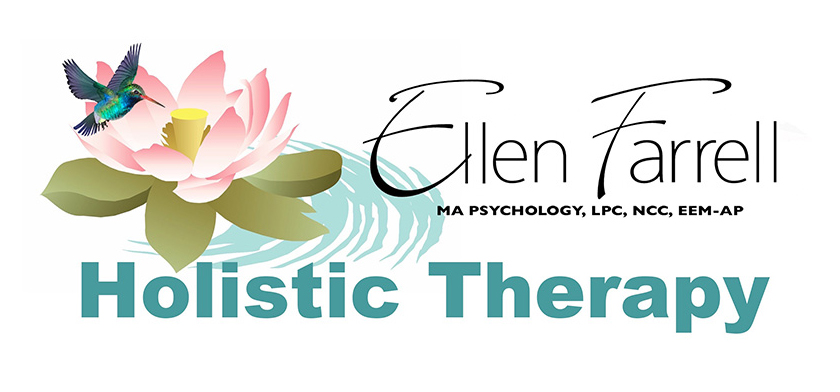Meditation – The Science of Stillness
By Ellen Farrell, MA, NCC, LPC, EEM-AP
Simple steps for stress management…
Meditation has been widely researched, and the findings support its use for improving a variety of physical and mental problems, and as a preventive measure. It may also bring about a greater sense of spiritual and community connection, resulting in increased inner peace with greater insight, intuition, and trust. An important part of meditation is conscious abdominal breathing.
While there many types of meditation, awareness of the breath is the cornerstone of continued benefits. Incorporating meditation into your life may not only increase your health in mind, body, and spirit, it can also give you the skills to navigate through life’s ups and downs with grace and clarity.
According to an article in Psychology Today (May/June, 2001), with regular meditating one may experience an increase in positive feelings, gain greater objectivity, and develop skills for stress management. In fact, just a 10-minute session can result in a reduction of anxiety and depression. Another study, (1995, Journal of Hypertension) showed that 20 minutes of meditation 2x a day was “more effective than drugs” in reducing hypertension.
Dr. Jon Kabat-Zinn concurs, as his research found that drug intervention was not as effective in reducing symptoms. He states that stress-related illnesses as well as chronic disease are the most difficult to treat – and that meditation can improve these situations in several ways, showing: reduction of pain, stress hormones, and excess stomach acid; lower blood pressure; and an increase in relaxation/ ability to cope with stressors.
Almost all patients show a “dramatic reduction in physical symptoms”, and over an 8-week period, anxiety, depression, and hostility were decreased (with consistent results after a four year follow-up study).
In How To Meditate, Susan Smith Jones quotes studies, which found that people who have been meditating for 5+ years were biologically 12 to 15 years younger than the non-meditators. Hospital records comparing 2000 meditators to non-meditators revealed that they needed only half as much medical care! Dr. Herbert Benson, an author and leader in mind/body medicine and research, puts it this way
“Since roughly 60% to 90% of doctor visits are for conditions related to stress, it is vital not to neglect a mind-body approach.”
Many noted professional have documented the benefits of meditation, and I include a brief list for further study . . .
The Relaxation Response; The Wellness Book, Herbert Benson, M.D.
Meditation for Beginners, Jack Kornfield
The Heart of Meditation: Pathways to a Deeper Experience,
Swami Durgananda, Sally KemptonWherever You Go, There You Are, Jon Kabat-Zinn
Minding the Body, Mending the Mind, Joan Borysenko, and Ph.D.
The Power of Now, Eckhart Tolle
Meditation As Medicine: Activate the Power of Your Natural Healing Force, Dharma Singh, Khalsa, M.D., et al
This article was originally published in the SCAD Chronicle where Ellen was a counselor, likely in 2002.



Sorry, the comment form is closed at this time.